Gaura
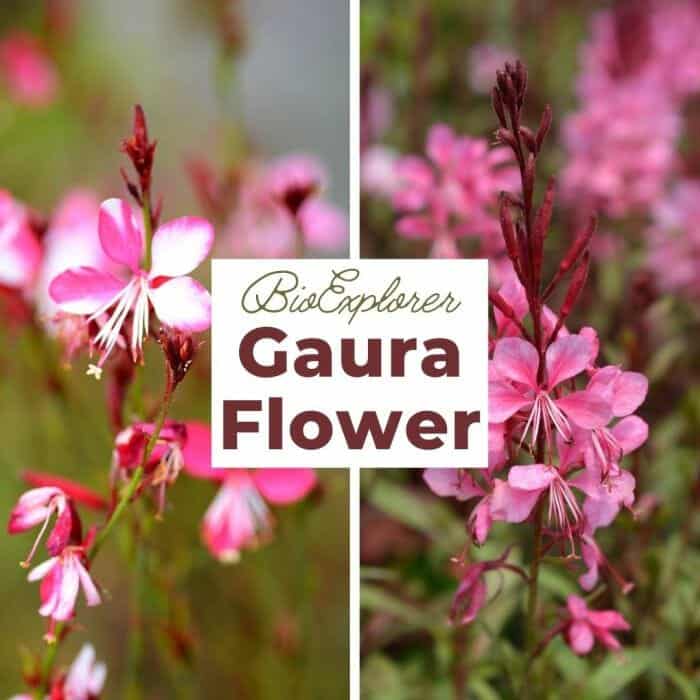
Attract butterflies and other pollinators to your garden with Gaura’s long stems made of delicate flowers. Use this hardy native perennial as a model plant among small herbs and larger perennials, or create an impressive display by planting in large containers.
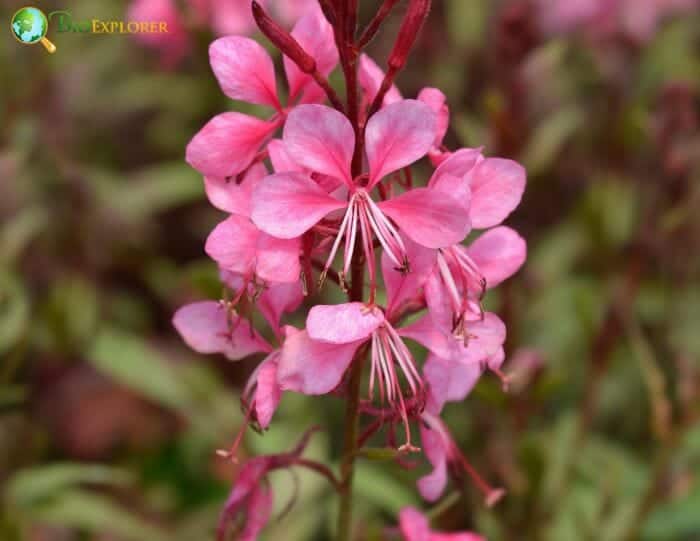
Several Gaura species, such as Gaura lindheimeri, originate in northern Mexico and Texas. Known commonly as Whirling Butterflies, gaura plants feature delicate, four-petaled white or pink flowers on tall, wispy stems that dance in the breeze.
The flowers are fleeting, often lasting just a day, but the plants bloom profusely from spring through fall. Gauras' drought tolerance makes them ideal for Mexico's semi-arid regions. Although it wasn't heavily featured in ancient Mexican cultures, today gaura is valued for its easygoing nature in gardens across Mexico and the southwest U.S., symbolizing grace and resilience.
The Gaura plant is a stunning shrub native to Texas and Mexico. It’s a genus of about 20 species[1] that belongs to the Onagraceae family (primrose).
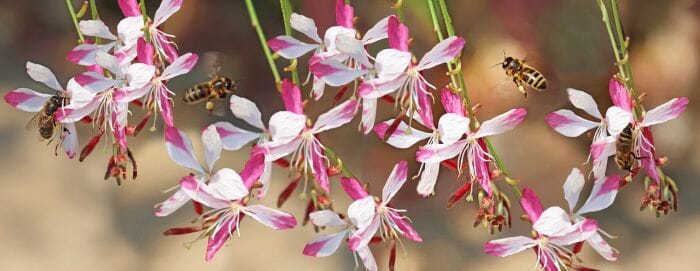
In addition to its botanical name Gaura lindheimeri, it is also referred to as white Gaura, bee-blossom, and apple-blossom grass.
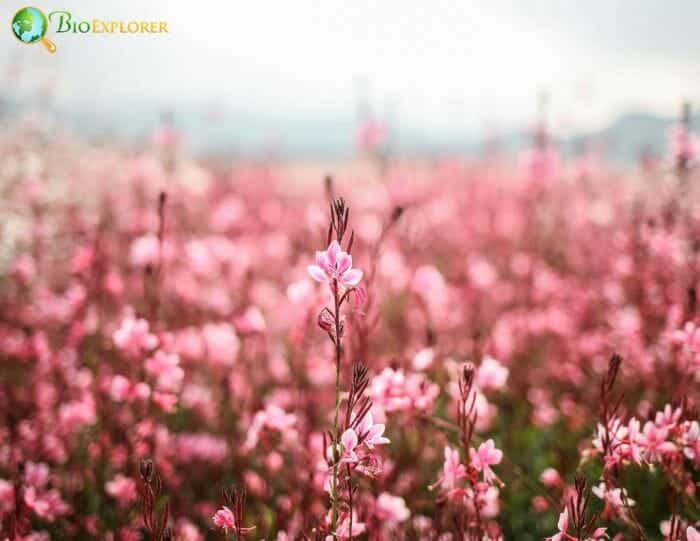
It is a perennial herb that grows to around 15 to 48 inches in height. The flowers are pink, white, or a mixture of the two colors.
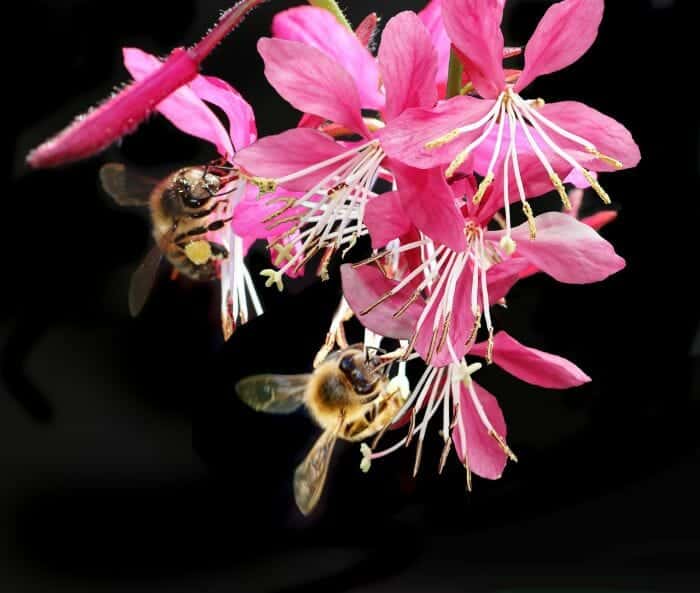
The flowers bloom from early summer to mid-autumn. They grow on stiff stems that can reach 3 to 4 feet tall, and each flower features 4 petals growing upward.
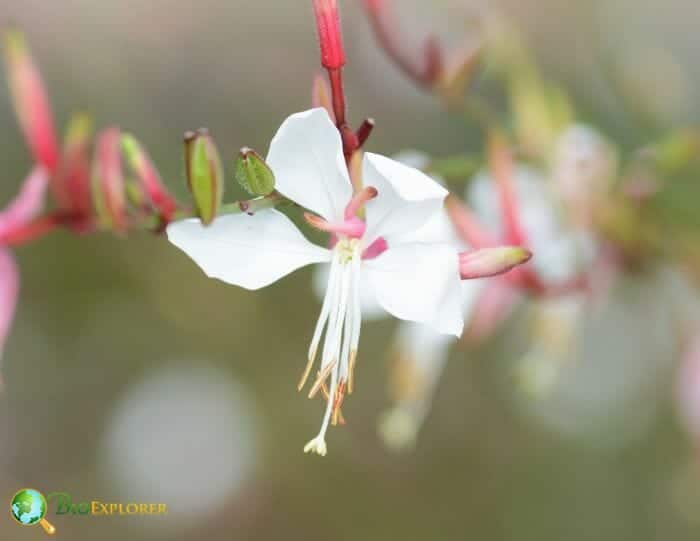
The foliage of the Gaura plant has a woody taproot and is lanceolate, slightly wavy, and narrow. Garnet spots can sometimes be seen in the foliage of this plant. The color of the foliage can vary from burgundy to dark green.
Cite this page
Bio Explorer. (2026, January 28). Gaura. https://www.bioexplorer.net/plants/flowers/gaura/
